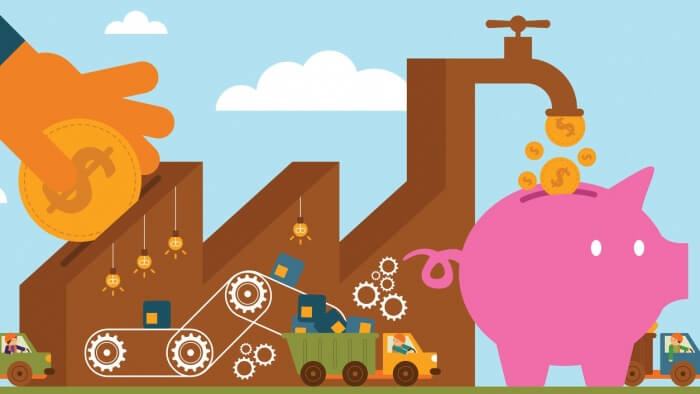'Making Tax Digital' is a government programme to make tax declarations easier for people and businesses - will it work?
Making Tax Digital: What's It All About?
'Making Tax Digital' is a government programme to make tax declarations easier for people and businesses - will it work?
About 12 years ago I visited Sweden to speak at a conference of public sector IT leaders. On the walk through Gothenburg from my hotel to the conference centre, I remember being amazed by the parking meters that encouraged payment by mobile phone.
On mentioning this over lunch at the conference, I was also regaled about the recent advances in Sweden’s tax system.
The Swedish tax authorities took it upon themselves to do as much work in preparing your return as they possibly could using the data they had access to.
Swedish taxpayers with regular monthly incomes would receive a text message or email asking them to confirm that the tax calculations for the year were accurate. If everything looked correct, the taxpayer just replied ‘OK’, and they were done.
Or take Estonia where administrative law says that government bodies can actually be fined for asking citizens for information which they could reasonably get elsewhere, including through their e-Government ‘Data Spine’. In other words, the onus is on the public agencies to make using online services as easy as possible!
Here in the UK we’ve been edging towards a more digital tax system rather more cautiously and slowly than those examples. But the time has now come for tax to go completely digital. The ‘Making Tax Digital’ (MTD) programme was first announced in 2015 and this January was at last given the final go-ahead.
What does Making Tax Digital involve?
In essence, every business with a turnover of over £10,000 will need to start using digital accountancy tools and submitting updates to HMRC at least quarterly. The mandatory transition will start in April 2018 and conclude by April 2020. Landlords and sole traders will be the first required to transition.
There’s been a huge amount of grumbling and protest about these plans, but in most cases I don’t think the complaints have been justified. This is a positive and necessary programme that will lead to simpler, faster and more accurate taxation for, eventually, everyone in the UK.
The safeguards HMRC has offered to deal with those who will struggle to use or access online tools are significant. Furthermore, January’s announcement made clear that businesses would be given at least 12 months grace before any penalties would be applied for failure to comply with the new MTD regime.
Government also bowed to pressure in allowing spreadsheets to be count as ‘digital record keeping’. I have some concerns about this, as spreadsheets can be notoriously prone to inadvertent error and confusion, whereas purpose-built software can be more robust. However, it will ease the transition for those not able to be online all the time or more used to working with spreadsheets.
There are also those who have protested at the idea of doing ‘additional tax returns’ for compliance with MTD. This totally misrepresents what will be happening. As one of the providers participating in the private beta trials for MTD, we at Crunch have seen that the updates will be lightweight and essentially no different to Real Time Information (RTI)payroll updates.
We anticipate that, for our customers, MTD compliance will be completely transparent; they will just carry on as normal. It will require even less interaction than the current quarterly online filing for VAT returns.
Simpler, faster and more accurate
There are clear benefits to combining your updates along with other data from banks and pension providers, for example, HMRC will have a far more accurate picture of your tax position. This will reduce or even eliminate the over and underpayments that can make cash-flow tricky for the self-employed.
Over time, as the adoption completes, I expect the all-digital tax landscape to create opportunities for further simplification and flexibility to the benefit of the self-employed and small businesses.
For example, lots of optional tax schemes aimed at ‘reducing administration’ often cause confusion for firms unsure if they can, or should, opt into them. When tax is automated and digital, those challenges fade away.
I also expect allowances and benefits open to small firms will be easier to access and use. I hope HMRC will flag them up proactively to users, so as to avoid the low uptake we’ve seen of some past schemes, such as Growth Vouchers and Employment Allowance.
I’ve no doubt there will be hard work and difficulties on our way to an all-digital world of tax. HMRC will need to reassure concerned voices, deliver a massive publicity programme and show that it is able to deal with the inevitable teething trouble and edge cases.
But in the end, I believe we’ll experience a better tax system for all - one that means business owners can spend even more time focussing on what matters to them, not tax administration.
Thanks for signing up to Minutehack alerts.
Brilliant editorials heading your way soon.
Okay, Thanks!




